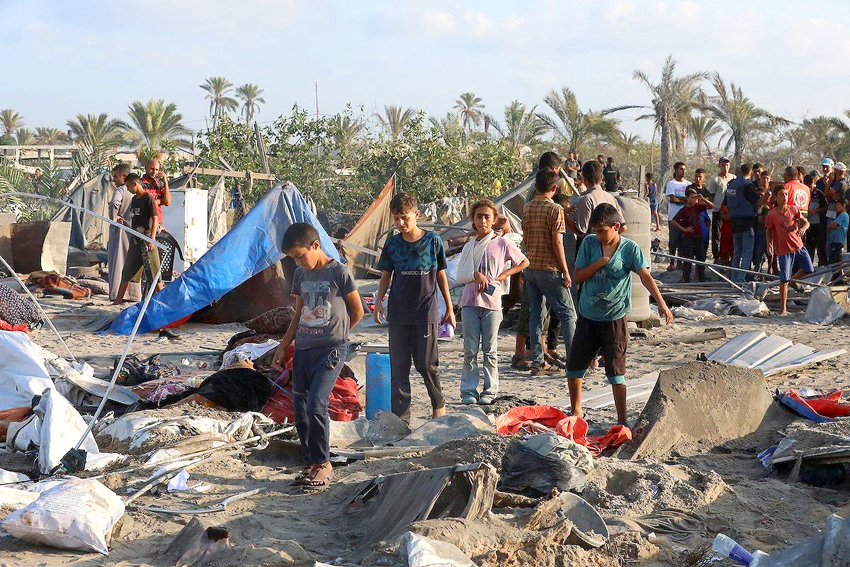
SINCE 7 October 2023, Israeli airstrikes have emerged as the leading cause of death for humanitarian workers globally, responsible for over 75 per cent of the 378 aid worker fatalities recorded in the past 11 months.
This grim statistic, based on data from the USAID-funded Aid Worker Security Database (AWSD), was highlighted in a report published on 12 September by Responsible Statecraft.
The report details the most recent Israeli assault on UN workers in Gaza’s Nuseirat refugee camp, part of a disturbing pattern of targeted attacks on humanitarian workers in the occupied Palestinian territories. The final quarter of 2023 alone witnessed more fatalities from Israeli attacks on aid workers than any previous full year on record.
A troubling pattern has emerged over the past 11 months, suggesting that the Israeli military is intentionally targeting humanitarian groups, even those that have shared their coordinates with Israeli authorities in accordance with deconfliction protocols.
‘This pattern of attacks is either intentional or indicative of reckless incompetence,’ remarked Christopher Lockyear, Secretary General of Médecins Sans Frontières (MSF), during a UN Security Council session in February, following an Israeli tank shelling of an MSF facility in Khan Younis.
Responsible Statecraft’s report outlines 14 instances where the Israeli army deliberately targeted humanitarian workers in Gaza, despite these organisations adhering to the deconfliction protocols designed to prevent such attacks.
Between November and December 2023, Israeli forces attacked a ‘clearly marked’ MSF convoy in Gaza City, fired 20mm cannon rounds at UNRWA facilities in Rafah, opened fire on a UN convoy in central Gaza, and shelled the Convent of the Sisters of Mother Teresa (Missionaries of Charity) – a Church specifically listed among Christian sites that US congressional staffers had flagged to Israeli authorities for protection.
In January alone, Israeli forces launched attacks on shelters and residential compounds operated by MSF, the UN, the International Rescue Committee (IRC), Medical Aid for Palestinians (MAP), and the Belgian development agency, Enabel.
These attacks persisted throughout the year, including the bombing of a World Central Kitchen (WCK) convoy in April, which resulted in the deaths of seven aid workers.
Other humanitarian organisations, including the World Food Programme (WFP) and UNICEF, have also been targeted at locations where their coordinates had been shared with Israeli forces.
Stephen Semler, co-founder of the Security Policy Reform Institute, commented on this ongoing violence in an article for Responsible Statecraft, stating: ‘Humanitarian organisations can be based in a Western country (including one upon which Israel relies for weapons), have a direct line to the IDF, follow all deconfliction procedures to a T, and still be attacked by the IDF.’
He also noted that these relentless assaults by Israel are mirrored by a consistent pattern of inaction from US officials, who have done little beyond expressing ‘words of concern’ from the White House briefing podium.
Despite these allegations of concern, Washington has continued to approve weapon shipments and arms deals for Israel.
Since 7 October 2023, the US has sent over 50,000 tons of weapons and military equipment to Israel, in addition to billions of dollars in ‘military assistance’.